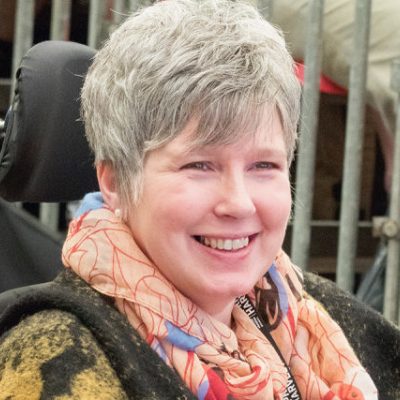How can you improve the overall experience of church for people within a few weeks? Some of you will be wanting to know what this magical solution is, but you may be surprised by the answer to this question.
Pre-COVID-19, the church experience of those with disabilities and additional needs has not been good, and this has been for as many reasons as there are disabilities. Ask the inclusion question to disabled people now and you will find the percentage of those able to access and even be included in the ministry of a church has risen dramatically.
The reason? The church moved online. Some have said that the significant increase in people connecting with churches online is mainly made up of that massive invisible group for whom physical church is impossible.
For a large number of Christians with disabilities, online church has been for many years the only way to connect and have fellowship with other believers. It’s not been the local church they longed to stay connected with, but it’s been a solid community, providing a much-needed space to grow. And then came the pandemic: the ‘meeting’ part of church moved online en masse, amid cries of “This isn’t ‘real’ church” and “I can’t wait to get back to ‘normal’ church”.
Well, now is the time that some, in small groups and in accordance with government guidance, can get back into the church building. But those who have for the first time in many years been able to connect with their local church, to renew friendships and be able to minister in their own right once again, are frightened.
What happens if the cameras get switched off? What happens when the church WhatsApp group isn’t quite so well used? Will they have to go back to the old ways of loneliness and isolation because the church is relishing the fact that the ‘old way’ has returned?
As our church buildings begin to reopen, it’s not just the services that will be different. The people will be too. There will be some who cannot get into the building because they need to continue shielding. People who have had the virus may still be unwell – probably for some time to come. Many will be struggling with their mental health and anxiety. And this won’t just be the congregation, it will affect our leadership teams too.
For many people who have been isolated due to chronic illness and disability, this temporary lockdown the church has experienced is their permanent reality. These people are the experts in what is needed and should be included in the conversations surrounding how to ‘do’ church as the lockdown rules lift and change.
We cannot do this well without them having a seat at the table. Not just included – but listened to. Not just put back into the role of a receiver, but allowed to minister remotely – including on the big screen at the church, in the teams that deal with the online tech, teaching the children, and leading homegroups.
There are also many other experts who can help in supporting others who have not coped so well with the closure of our church buildings, such as those who need subtitles on videos. Another group that has struggled are adults and young people who have learning difficulties, as many either don’t have technology or can’t use it – and if they do have the tech, the services are just way above their understanding.
As we pray our way through the minefield of changes, remember that this is such a wonderful opportunity to become an even more inclusive community than we have ever seen before, finding new and better ways to become a place of belong for all abilities.
Think these things through for those with chronic illness and disability, and you will find it helps everyone, of any age, to be included in the brave new world that is a very different sort of church. It’s worth the effort.
"As our church buildings begin to reopen, it’s not just the services that will be different. The people will be too."



